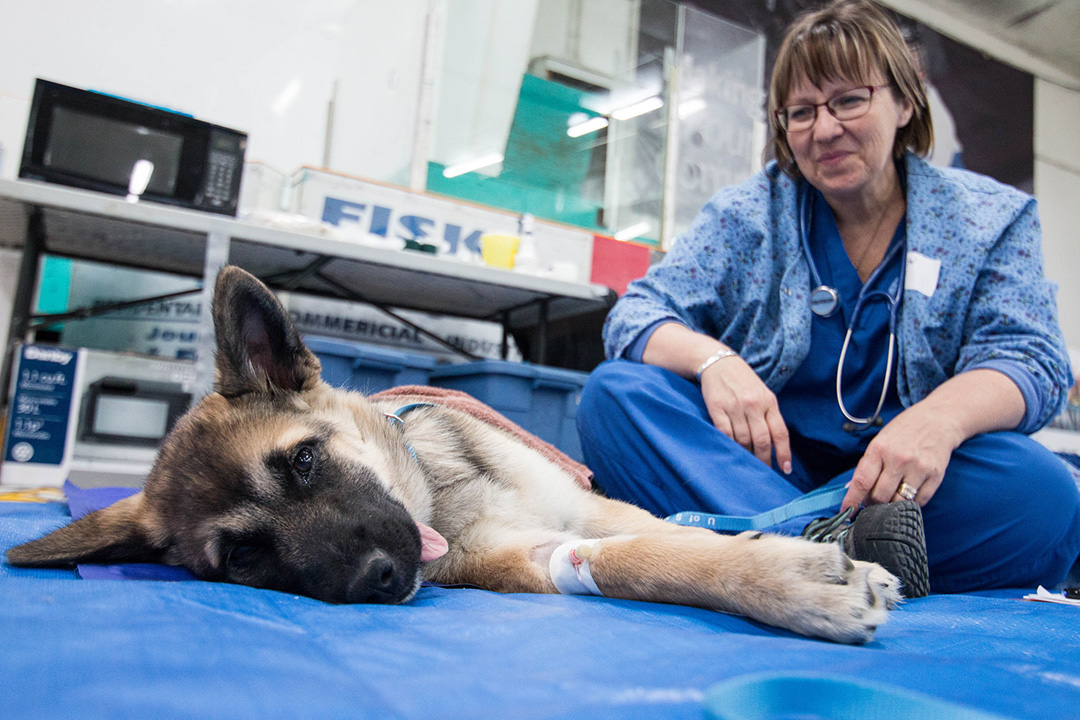
Bringing vet care north
Providing education and access to services for remote communities is a daunting task. Not all communities have the same opportunities, but the University of Saskatchewan has faculty and alumni who work on a daily basis to reduce the inequity between the north and the south.
By CHELSEA LASKOWSKIThe Western College of Veterinary Medicine’s (WCVM) twice-annual Lac La Ronge spay, neuter and deworming clinics take place in a hockey rink, and over the years, they have fittingly become a bit of a spectator sport for local residents. The most recent marathon weekend clinic saw a record 98 surgeries and 88 wellness exams performed by the veterinary college and its students.
“We’ll have people who just like literally stop by and stand up in the bleachers because we’re on the rink, the ice surface essentially, doing the spay and neuter [surgeries] so people just come and watch,” said Dr. Karen Sheehan, one of the veterinarians who first piloted the clinic four years ago. She is also a clinical associate at the WCVM’s Veterinary Medical Centre.
The year before the formal university partnership was formed with La Ronge in 2014, Sheehan was among a handful of veterinarians who held a Northern Animal Rescue-sponsored vaccination clinic. Her passion for animals, and her upbringing in rural Prince Edward Island where “I didn’t come from much,” drew her into the volunteer work. Many in the region had previously never learned about the treatments needed to keep pets healthy and to prevent overpopulation, and others simply can't afford trips to the nearest veterinary clinic 240 kilometres away.
“I guess for me personally, I am an extremely empathetic person,” she said.
The captive audience at the Jonas Roberts Memorial Community Centre each year, the vet student trips over to the community’s schools to talk about animal welfare, and the community outreach work that Sheehan spends up to half of her day job setting up, are paying off.
“A couple of years ago I had a 14-year-old girl who lived with her grandparents and she had her grandparents (bring) her puppy to be spayed because the granddaughter felt that that was important. And those are the things that we can provide,” she said.
Another example is that she sees dogs on leash in La Ronge more often now, rather than seeing them roaming free.
There is demand for more of these clinics in communities across the north, and Dr. Sheehan is pulled in all directions throughout the year with requests for veterinary help from people she’s worked with in La Ronge, but she acknowledges there isn't enough manpower to hit them all. She sees the potential benefit of telemedicine, a tool delivered through mobile phones and a device of the future that the university is starting to explore with veterinary medicine.

